
Local Insight is now hosting over 330 new indicators from Scotland’s 2022 Census which can be explored through interactive maps, customisable dashboards and comprehensive reports.
The indicators reveal how Scotland’s population has changed over the last decade, including shifts in identity and daily life. They cover topics such as: health, education, housing, religion, migration and national identity.
Census data is widely regarded as the gold standard of open data. When used close to publication, it provides the most accurate picture of communities – helping you to target local interventions more effectively.
There has been a census in Scotland every 10 years since 1801, except 1941. The 2021 census in Scotland was moved to 2022 due to the impact of the COVID-19 pandemic.
As National Records of Scotland Chief Executive Alison Byrne explains: “the huge range of unique data National Records of Scotland has produced will help government, businesses and charities to plan for services we all use in the years ahead.”
We’ve set-up a Public Site with data from Scotland’s Census 2022 set-up within a theme for you to explore. You will find link to a Local Insight map, displaying key data from each of these themes within each subheading below.
To explore a Local Insight subscription for your organisation, and map the census data to the areas you’re working with yourself, book a demo today and receive a free two-week trial.
On Census Day in 2022, the population was estimated at 5,436,600 – the highest ever recorded for Scotland. Since the previous census in 2011, Scotland’s population has increased by 141,200 (2.7%). However, this growth rate is slower than the 4.6% rise recorded between 2001 and 2011, when the population grew by 233,400. Without migration, Scotland’s population would have declined by approximately 49,800 since 2011.
Explore Scotland’s population data within Local Insight
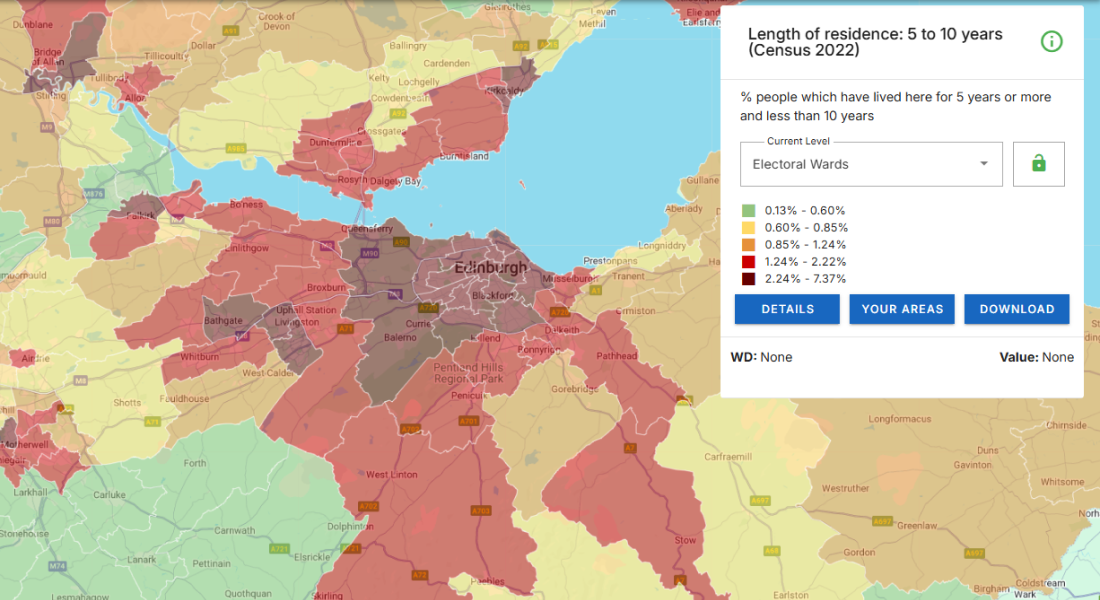
Scotland’s Census 2022 asked respondents to share whether they had a condition that affected their emotional, physical and mental wellbeing. 617,100 people responded stating that they had a mental health condition – more than double the figure for 2011.
Explore Scotland’s mental health data within Local Insight
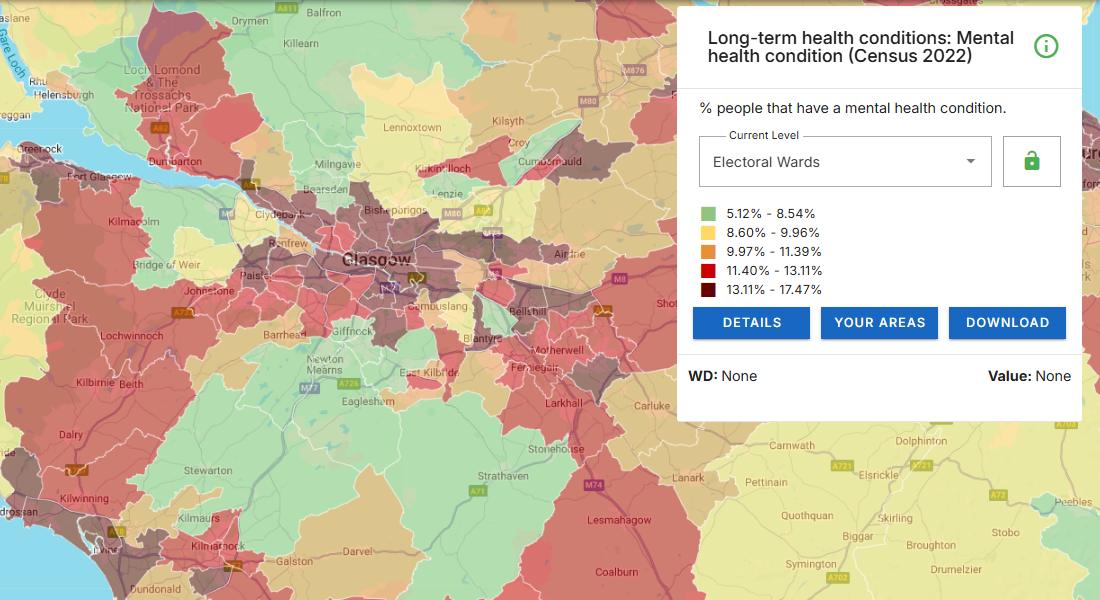
Around one in three adults in Scotland (approximately 1.5 million) have degree level qualifications or above – up since 2011. There are also now fewer people with ‘No qualifications’ – approximately 750,000 less – a 35.4% decrease from 2011.
Explore Scotland’s data showing highest level qualification within Local Insight
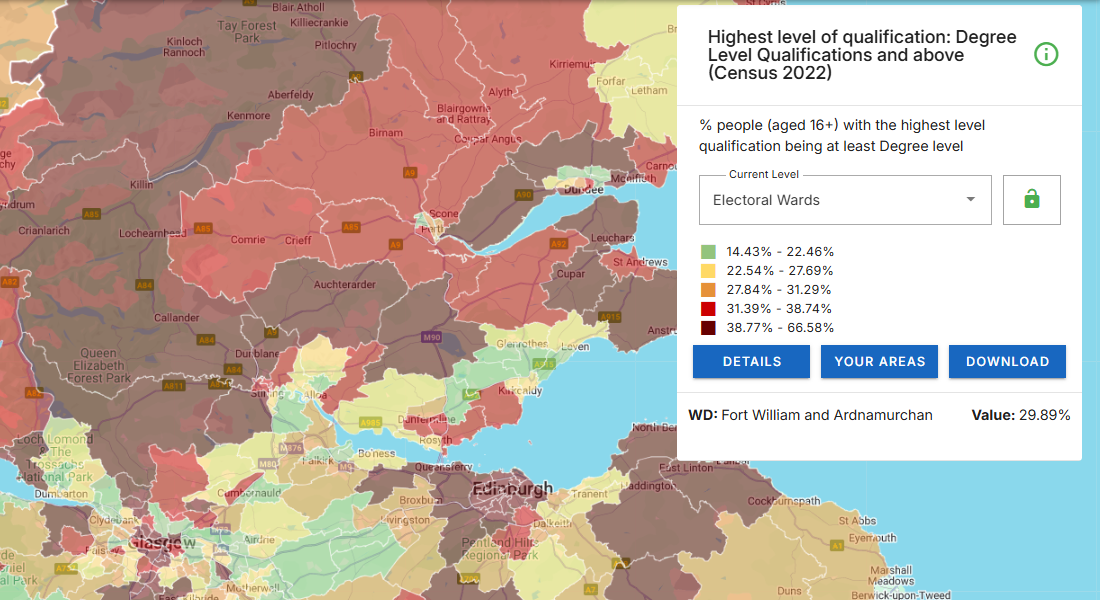
Since 2011 Scotland has seen an increase of 28.8% in the number of households that own their own home outright – with 851,100 households stating they do in 2022. There has also been an increase of 9.5% in the number of people renting privately (323,000 households).
Explore Scotland’s housing data within Local Insight
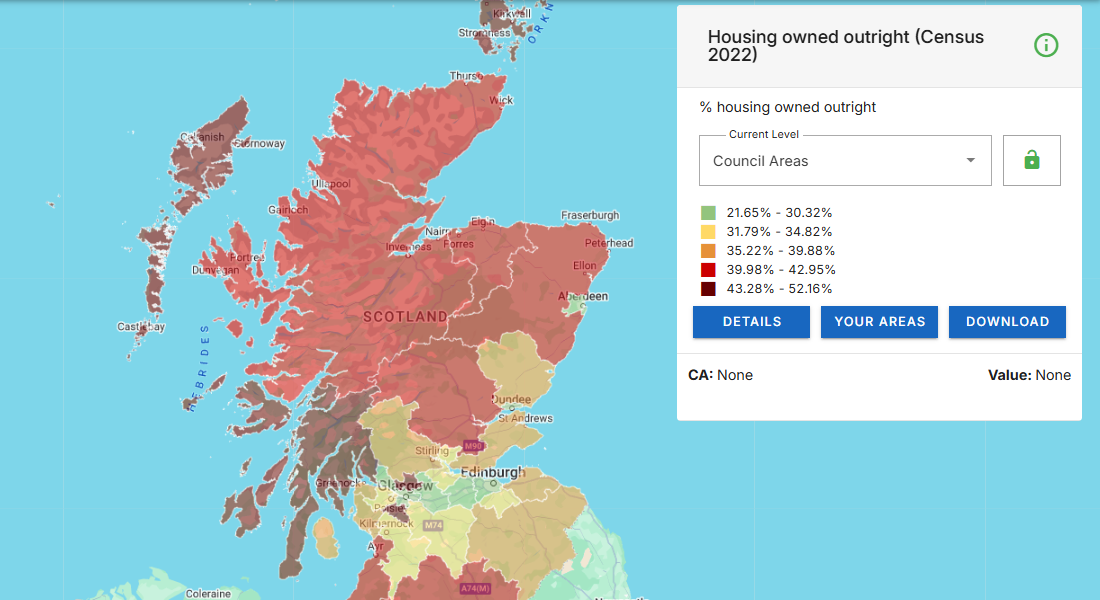
There was a 106,700 increase in single person households (up 13.0%). The 2021 census in England and Wales showed a smaller percentage increase in single person households (up 5.9%). Most of this increase in people living alone was in older age groups.
Explore Scotland’s household data within Local Insight
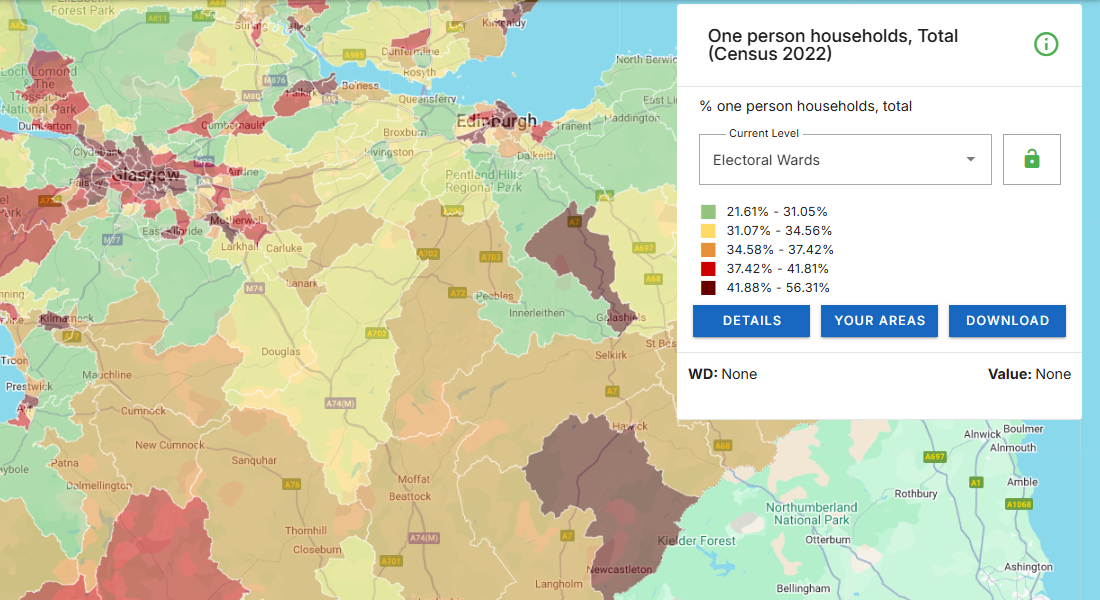
Just over half a million (554,900) people living in Scotland were born outside of the UK. Almost half of people born overseas had been living in the UK for 10 or more years (49.8%).
Explore Scotland’s migration data within Local Insight
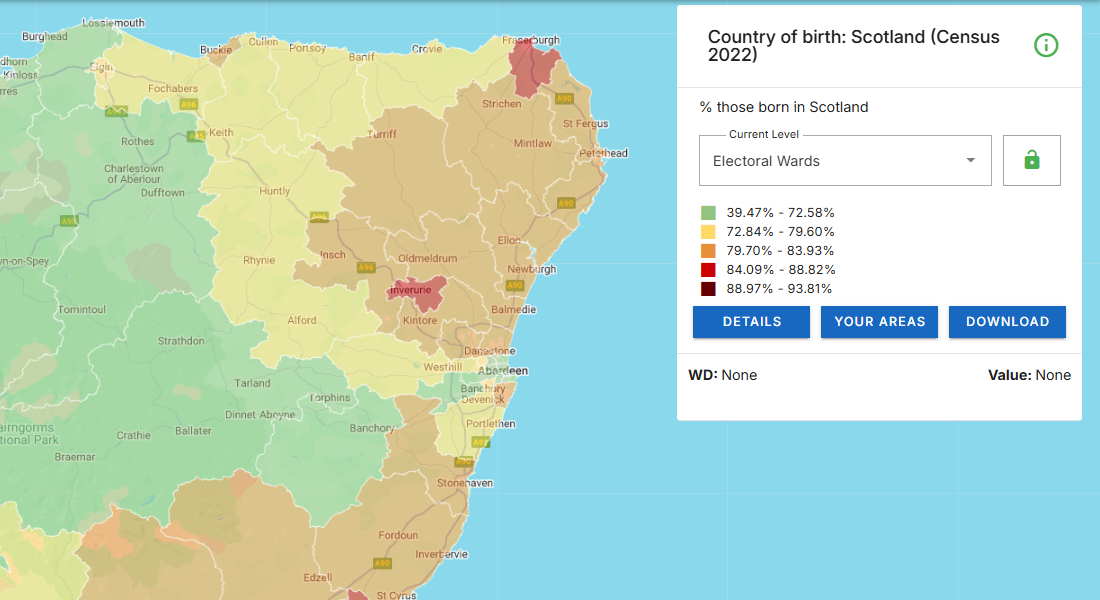
We will continue to add to the number of census indicators as new data is released at lower geographies. We’ve written more about why we need data to be published at this level within another blog, exploring the delays and the work taken to bring the data into Local Insight.
Upcoming data additions will include multivariate census outputs, which are expected for release over the coming months.
The newly launched multi-map analysis feature within the Local Insight platform encourages…
More
Brighton & Hove Food Partnership (BHFP) is a citywide charity that works…
More
You don’t need to spend hours making ward profile reports. If you…
More